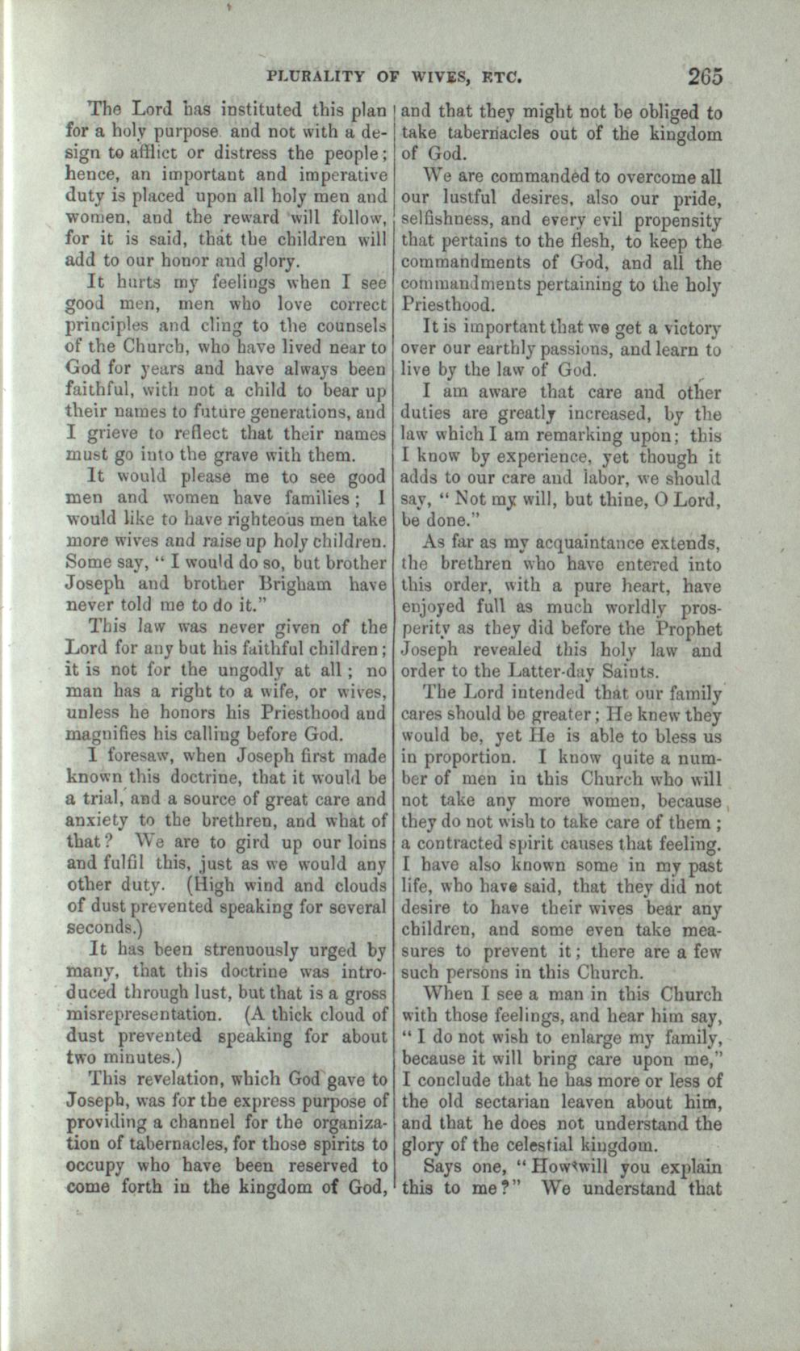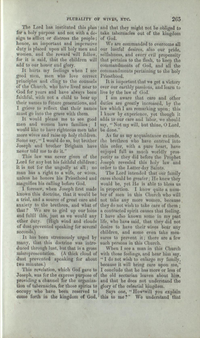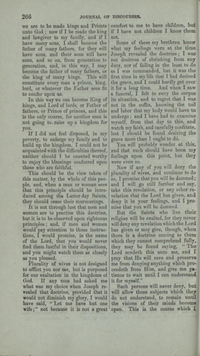Brigham recalls being introduced to plural marriage by Joseph Smith in Nauvoo.
- Type
- Speech / Court Transcript
- Hearsay
- Scribed VerbatimDirect
- Reference
Brigham Young, "Plurality of Wives—The Free Agency of Man," Journal of Discourses, 26 vols. (Liverpool: Orson Pratt, 1856), 3:265–266
- Audience
- Latter-day Saints, Reading Public
- Transcription
This revelation, which God gave to Joseph, was for the express purpose of providing a channel for the organization of tabernacles, for those spirits to occupy who have been reserved to come forth in the kingdom of God, and that they might not be obliged to take tabernacles out of the kingdom of God.
We are commanded to overcome all our lustful desires, also our pride, selfishness, and every evil propensity that pertains to the flesh, to keep the commandments of God, and all the commandments pertaining to the holy Priesthood.
It is important that we get a victory over our earthly passions, and learn to live by the law of God.
I am aware that care and other duties are greatly increased, by the law which I am remarking upon; this I know by experience, yet though it adds to our care and labor, we should say, “Not my will, but thine, O Lord, be done.”
As far as my acquaintance extends, the brethren who have entered into this order, with a pure heart, have enjoyed full as much worldly prosperity as they did before the Prophet Joseph revealed this holy law and order to the Latter-day Saints.
. . .
Plurality of wives is not designed to afflict you nor me, but is purposed for our exaltation in the kingdoms of God. If any man had asked me what was my choice when Joseph revealed that doctrine, provided that it would not diminish my glory, I would have said, “Let me have but one wife;” not because it is not a great comfort to me to have children, but if I have not children, I know them not.
Some of these my brethren know what my feelings were at the time Joseph revealed the doctrine; I was not desirous of shrinking from any duty, nor of failing in the least to do as I was commanded, but it was the first time in my life that I had desired the grave, and I could hardly get over it for a long time. And when I saw a funeral, I felt to envy the corpse its situation, and to regret that I was not in the coffin, knowing the toil and labor that my body would have to undergo; and I have had to examine myself, from that day to this, and watch my faith, and carefully meditate, lest I should be found desiring the grave more than I ought to do.
- Citations in Mormonr Qnas
The B. H. Roberts Foundation is not owned by, operated by, or affiliated with the Church of Jesus Christ of Latter-day Saints.



